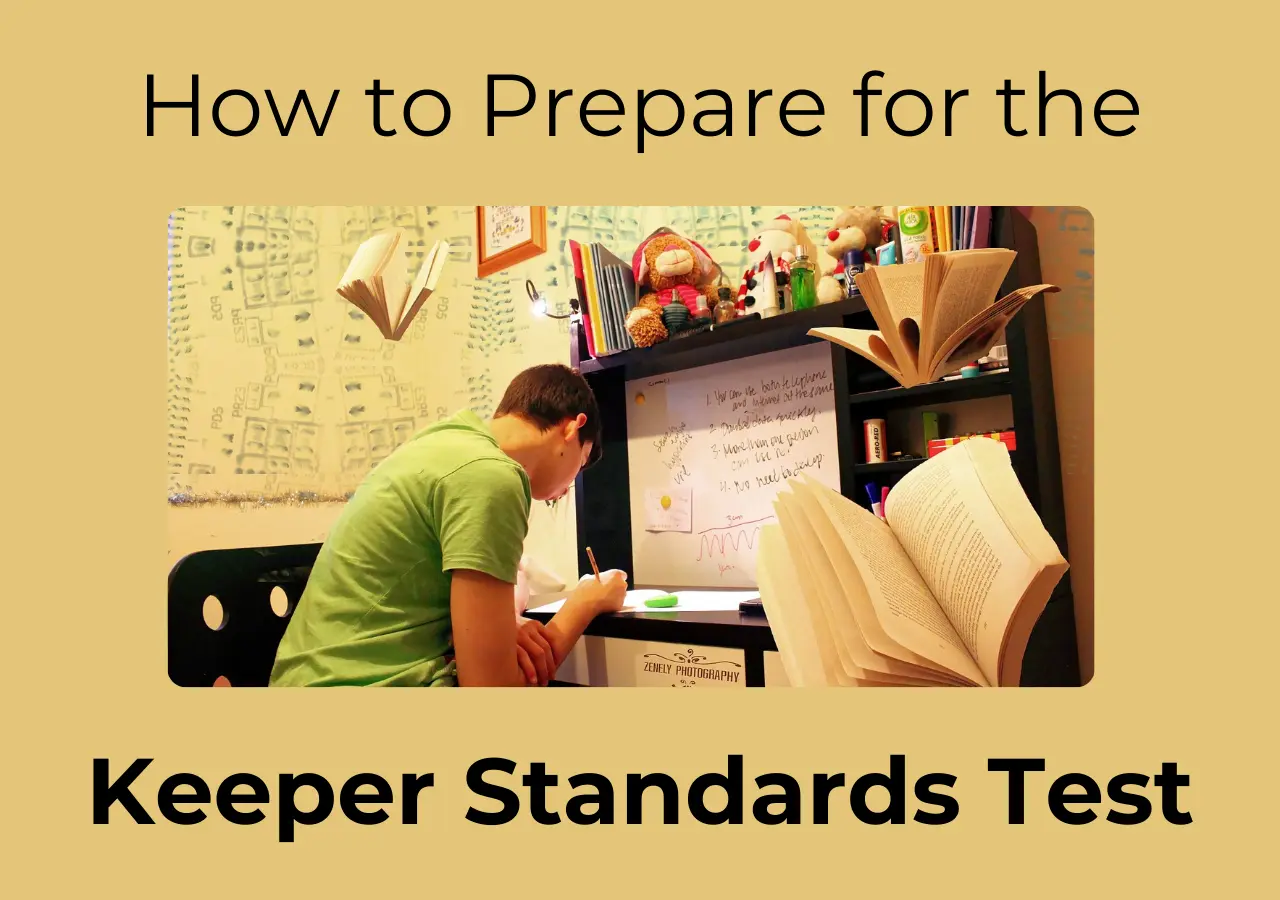Preparing for the Keeper Standards Test requires a strategic approach, a solid understanding of the test content, and effective study techniques. The best way to prepare for the Keeper Standards Test is by familiarizing yourself with the test structure, understanding the key concepts that will be tested, and practicing regularly with mock tests or sample questions. This approach ensures you’re well-equipped to meet the required standards and perform confidently on the test day.
The Keeper Standards Test is a critical assessment for individuals pursuing careers in industries where high safety, accuracy, and professionalism are essential. Whether you’re aspiring to be a sports official, working in the health and safety sector, or involved in another field that requires stringent adherence to guidelines, this test is designed to evaluate your knowledge, skills, and ability to apply them. In this article, we’ll explore the best strategies to prepare for the Keeper Standards Test, covering everything from understanding the test format to effective study techniques.
Understanding the Keeper Standards Test
The first step in preparing for the Keeper Standards Test is to understand what the test entails. The test is designed to assess your knowledge of specific industry standards and practices that are essential for ensuring quality, safety, and compliance. It typically covers a range of topics, including regulatory requirements, operational procedures, and ethical considerations.
Each section of the test is structured to evaluate your understanding of these key areas. For instance, you might be asked to identify the correct procedure for handling a specific situation or to demonstrate your knowledge of legal regulations that apply to your field. Understanding the structure and content of the test will help you focus your study efforts on the areas that matter most.
1. Reviewing the Test Content Outline
A critical part of your preparation should be a thorough review of the test content outline. This outline provides a detailed breakdown of the topics covered in the test, allowing you to prioritize your study time effectively. Start by identifying the sections where you feel least confident and allocate extra time to these areas.
The content outline will also give you an idea of the weight each topic carries in the test. Some sections may be more heavily weighted than others, meaning they will have a greater impact on your overall score. By focusing on these areas, you can maximize your chances of performing well on the test.
2. Gathering Study Materials

Once you have a clear understanding of the test content, the next step is to gather the necessary study materials. These may include textbooks, industry manuals, online courses, and practice tests. The goal is to compile a comprehensive set of resources that cover all the topics included in the Keeper Standards Test.
Consider reaching out to colleagues or industry professionals who have already taken the test for recommendations on the best study materials. Additionally, many professional organizations offer study guides and practice exams that are specifically designed to help you prepare for the Keeper Standards Test.
3. Creating a Study Plan
With your study materials in hand, it’s time to create a study plan. A well-structured study plan is essential for staying organized and ensuring that you cover all the necessary material before test day. Start by setting a realistic timeline for your study sessions, considering your work and personal commitments.
Break down the content outline into manageable sections and assign specific topics to each study session. This approach will help you stay focused and prevent you from feeling overwhelmed by the amount of material you need to cover. Be sure to include regular review sessions in your study plan to reinforce your knowledge and identify any areas where you may need additional study time.
4. Effective Study Techniques
To maximize your study efforts, it’s important to use effective study techniques. One of the most popular methods is active recall, which involves testing yourself on the material you’ve just studied. This technique helps reinforce your memory and improves your ability to recall information during the test.
Another effective technique is spaced repetition, which involves reviewing material at increasing intervals over time. This method has been shown to improve long-term retention of information, making it an ideal approach for preparing for the Keeper Standards Test.
Additionally, consider using mnemonic devices to help remember complex information. Mnemonics are memory aids that use patterns, acronyms, or rhymes to help you retain information more easily. For example, if you need to remember a list of regulatory requirements, you could create an acronym using the first letter of each requirement.
5. Practice with Sample Tests
Practice tests are an invaluable tool in your preparation for the Keeper Standards Test. These tests simulate the format and content of the actual exam, giving you a realistic sense of what to expect on test day. Taking practice tests will also help you identify any areas where you need to focus your study efforts.
When taking practice tests, try to simulate test conditions as closely as possible. Set a timer to match the actual test duration and find a quiet space where you won’t be interrupted. After completing each practice test, review your answers to identify any mistakes and understand why you got them wrong. This process will help you learn from your mistakes and avoid making them on the actual test.
6. Staying Informed on Industry Updates
The Keeper Standards Test is designed to assess your knowledge of current industry standards and practices. Therefore, it’s important to stay informed about any updates or changes that may affect the test content. Subscribe to industry newsletters, attend professional conferences, and participate in online forums to stay up-to-date with the latest developments in your field.
By staying informed, you’ll be better prepared to answer questions on the test that relate to recent changes in industry standards or regulations. This proactive approach will also help you maintain your expertise and stay ahead of the curve in your professional career.
7. Managing Test Day Stress

Test days can be stressful, but managing your stress effectively is key to performing your best. One of the best ways to reduce test-day anxiety is to be well-prepared. By following a structured study plan and using effective study techniques, you’ll build the confidence you need to succeed.
On test day, be sure to get plenty of rest the night before and eat a healthy breakfast to fuel your brain. Arrive at the test center early to give yourself plenty of time to settle in and review any last-minute notes. During the test, take deep breaths and stay focused on the questions in front of you. If you encounter a difficult question, don’t panic—move on to the next one and come back to it later if you have time.
8. Utilizing Study Groups
Studying in a group can be a highly effective way to prepare for the Keeper Standards Test. Study groups provide an opportunity to discuss complex topics, share study materials, and quiz each other on key concepts. By working with others, you can gain new insights and reinforce your understanding of the material.
When forming a study group, choose individuals who are equally committed to passing the test. Set a regular meeting schedule and establish clear goals for each session. Consider rotating the role of group leader to ensure that everyone has an opportunity to contribute and lead the discussion.
9. Taking Care of Your Well-being
Preparing for the Keeper Standards Test can be demanding, but it’s important not to neglect your well-being during this time. Be sure to take regular breaks during your study sessions to avoid burnout and maintain your focus. Engaging in physical activity, practicing mindfulness, and staying connected with friends and family can also help reduce stress and improve your overall well-being.
Remember, preparing for the Keeper Standards Test is a marathon, not a sprint. By taking care of your physical and mental health. You’ll be better equipped to handle the challenges of test preparation and perform your best on test day.
10. Final Review and Test Day Preparation
As test day approaches, it’s important to focus on your final review. Use this time to go over any areas where you feel less confident and review key concepts that are likely to appear on the test. Avoid cramming the night before the test, as this can lead to unnecessary stress and fatigue.
Instead, use your final review to consolidate your knowledge and ensure that you’re fully prepared. Pack your test day essentials, such as identification, any required materials, and a few healthy snacks. Get a good night’s sleep and approach the test with confidence, knowing that you’ve done everything possible to prepare.
Conclusion
Preparing for the Keeper Standards Test requires a combination of thorough knowledge, effective study techniques, and careful planning. By understanding the test content, gathering the right study materials, and following a structured study plan. You’ll be well on your way to achieving success.
Frequently Asked Questions
Q1: What is the most important step in preparing for the Keeper Standards Test?
The most important step is to familiarize yourself with the test format and core concepts. Understanding what to expect allows you to tailor your study plan effectively, ensuring you’re well-prepared for each section of the test.

